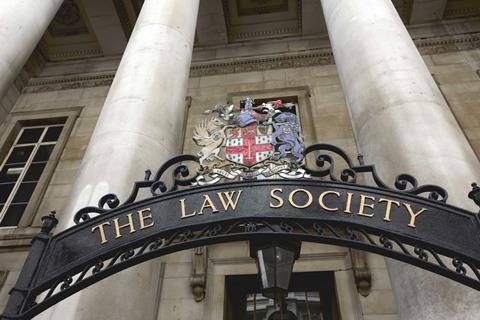Solicitors’ training, authorisation to practise and standard setting should return to being the direct responsibility of their professional body, the Law Society has said in a call for regulation to become less detached from the profession.
In a response to the Ministry of Justice’s call for evidence on the regulation of legal services, the Society criticises current arrangements for posing four problems.
- Unclear responsibilities and accountabilities for regulation and oversight.
- Regulation being ‘too detached’ from the profession. ‘Much of the Solicitors Regulation Authority’s work attempts a ”one-size fits all” approach which leads to significant burdens and bureaucracy for firms,’ the Society says.
- The current regulatory systems is expensive for the profession.
- Regulatory structures are perceived internationally to compromise the independence of the profession. ‘This affects the attractiveness and competitiveness of England and Wales as a centre for legal services,’ the Society says.
However in contrast to the responses of the SRA and Legal Services Consumer Panel, both of which call for fundamental reform, the Society says ‘relatively minor changes’ could ‘provide a more proportionate regime which retains accountability and builds on the expertise of the profession’.
Different professions should continue to be responsible for the regulation of their members, the Society says. Governance and structural arrangements should be modified so that the Society takes on direct responsibility for training and authorisation to practise and to ensure procedures are flexible enough to take account of the realities of different types of practice.
Investigation and prosecution of offences would be undertaken at arms’ length by an operational arm of the Society with independent decision-making powers, but reporting directly to the Society.
Meanwhile a reformed Legal Services Board, ‘chaired by a judge and with a significantly reduced staff’, should oversee the work of professional bodies. The consumer panel should be abolished.
‘We do not consider that an independent regulator or regulators are an appropriate solution,’ the Society says. ‘There is no evidence to suggest that the professional bodies cannot take decisions in the public interest about standards and qualification.
‘There is also no evidence to suggest that independent regulators are more capable of ensuring that there is independence of decision-making in respect of decisions to prosecute individual cases. The cost of such change would be substantial and there is no evidence that it is in the public interest.’
The SRA’s response to the call for evidence, also published today, takes a directly opposite approach. In a call for rationalisation of what it calls the ‘clumsy, costly and obscure’ system of regulating legal services’ it proposes structural separation between the regulator and the Law Society.
This would include abolishing the compulsory levy to fund the Law Society, the regulator suggests.

It says that changes set in train by the 2007 Legal Services Act ‘are breaking down the historical divisions in the market which linked reserved legal activities to types of individual legal professional defined by the titles they held’.
For example the SRA says it is now licensing as alternative business structures commercial entities such as accountancy firms, insurance companies and high street consumer brands ‘that would not consider themselves as solicitors firms and having little association with the Law Society and its activities undertaken on behalf of solicitors’.
Nonetheless, as a condition of practice, these businesses have to pay fees to fund the Society’s activities.
‘In the SRA’s view this compulsory levy is now, and will increasingly become, unsustainable: not just for new business models but for all of those regulated.’
As an alternative, the SRA floats the idea of putting in place a regulatory body independent of both government and the profession. Models of independent press regulation developed after the Leveson report produce ‘technically viable options’, it says.
Responding to the SRA, Desmond Hudson, the Law Society’s chief executive, said: ‘Membership of a professional body, being a solicitor, is not just about regulation but about serving the public good and upholding the ethos of a profession. The permitted purposes, in particular the work on law reform, international and pro bono, are all essential parts of the profession’s role in the legal system and the wider role of solicitors.’
The Bar Standards Board and Legal Services Board said they would publish their responses next week.
The Society’s response is available here. The SRA’s response is available on its website.
























8 Readers' comments